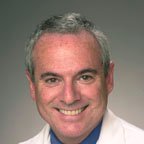Are Doctors Linkedin or Linkedout?

I think doctors have linkedout. Others have offered reasons why. Some disagree claiming that 1M doctors and nurses are on Linkedin. While that may be true, as the owner of a group that is approaching 30,000 members, I’ve observed:
1. Linkedin is mostly about finding a job. It does not fit the needs of doctors. Unless, that is, you didn’t match or a tired of medicine and looking for your next gig.
2. Social media sites are a useful way to educate, inform, market, build networks and communities of interest and build a business or start one. Most doctors are not interested in those things.
3. Doctors don’t have the time to actively engage to the extent they need to to be effective.
4. There are many competitive physician networks that offer more of a value proposition.
5. Doctors like to hang out with other doctors and feel uncomfortable expanding their networks outside of medicine.
6. They are afraid of liability risks and are just learning about how to use social media correctly.
7. Using Linkedin is a great way to build international networks. However, 10% will be talkers and the other 90% will be gawkers.
8. Linkedin can be used as a freemium business model. However there are risks and unless you offer a lot to premium members, it will fail.
9. Doctors use professional and specialty associations as advocates, as ineffective as some think they are. Not much get’s done on Linkedin.
10. The opportunity costs of their time is high. They don’t want to waste what little time they have left each day surfing on Linkedin
On the other hand, the kind folks at Linkedin have been sending me suggestions, based on my search history, that I connect with more MD/MBAs, so maybe I’m missing something.
That is unfortunate because in addition to not getting sales and marketing, doctors also don’t seem to understand that Linkedinnovation i.e. bottom up collaborative online innovation networks is the main model for creating and adding value. Here are some reasons why Linkedin can help you:
2. International graduates looking to connect with US colleagues
3. A place to post a blog to create awareness and build individual brand equity
4. A place to build a collaborative online innovation network and announce meetings
5. A place for physician entrepreneurs to connect to service providers, investors, other entrepreneurs and innovation stakeholders
6. A place to learn from others, particularly those outside of your industry
7. A place to mentor someone else
8. A place to get business intelligence about your competitors
9. A place to monitor trends, threats and opportunities
10. A place to share with other social media sites
Building a network takes time and persistence and you should make it an entrepreneurial habit. Here are the best ways to use social media to build your network.
Here are the most common mistakes made by bioscientists, engineers and medical professionals.
Plus, those over 65 who are more engaged on social media, like Facebook or Linkedin, are healthier and seem to have less cognitive decline, although one might not be causative of the other.
You can tell doctors on Linkedin who are as unengaged as they are where they work. Their profiles have no picture. Some have no last name. Most don’t complete their profiles and make you guess who they are, where they live and what they do. They make you struggle to connect with them. Sound familiar?
Getting doctors engaged on Linkedin is as difficult as it is at the hospital. While it can be a useful tool, most clinicians will be Linkedout and not engaged.
Of course, now that Microsoft has bought Linkedin, all that might change. But, given how sick care workers think and behave, it will still take a while for the majority of biomedical scientists and sick care workers to engage.
Image Credit: Pixabay
Wait! Before you go…
Choose how you want the latest innovation content delivered to you:
- Daily — RSS Feed — Email — Twitter — Facebook — Linkedin Today
- Weekly — Email Newsletter — Free Magazine — Linkedin Group
 Arlen Meyers, MD, MBA is the President and CEO of the Society of Physician Entrepreneurs at www.sopenet.org and co-editor of Digital Health Entrepreneurship
Arlen Meyers, MD, MBA is the President and CEO of the Society of Physician Entrepreneurs at www.sopenet.org and co-editor of Digital Health Entrepreneurship
NEVER MISS ANOTHER NEWSLETTER!
LATEST BLOGS
Three things you didn’t know about credit cards
Photo by Ales Nesetril on Unsplash Many of us use credit cards regularly. From using them for everyday purchases to…
Read MoreFive CV skills of a business-minded individual
Photo by Scott Graham on Unsplash The skills listed on a CV help employers quickly understand your suitability for a…
Read More


